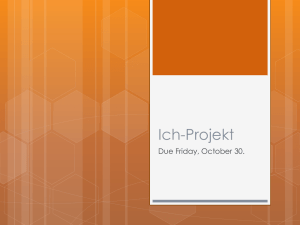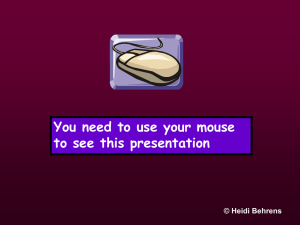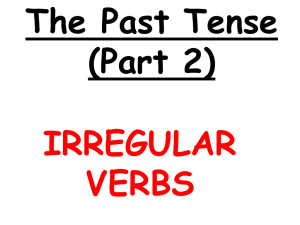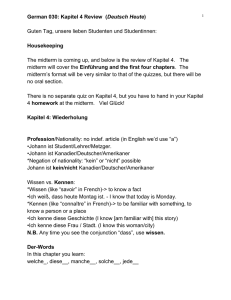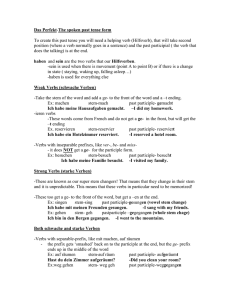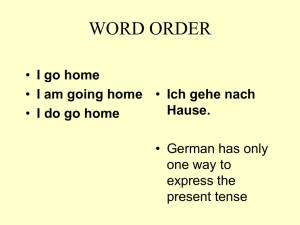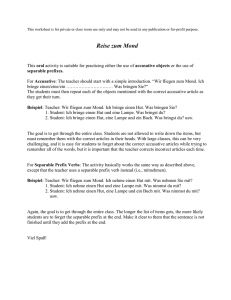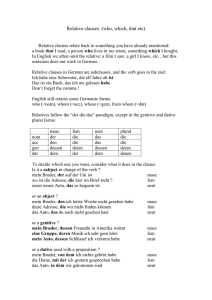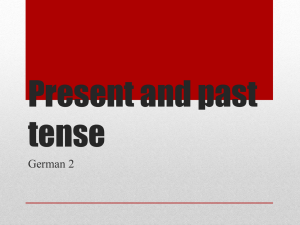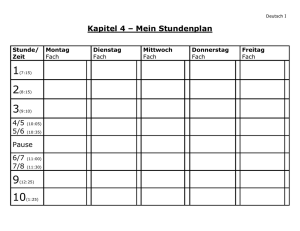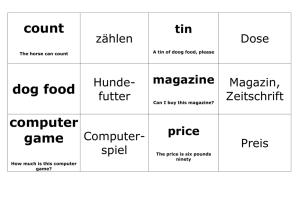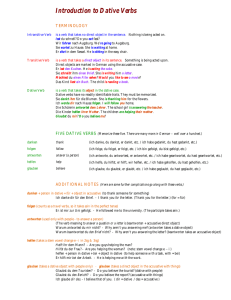Class Notes Kapitel 8 dritte Stufe
Werbung
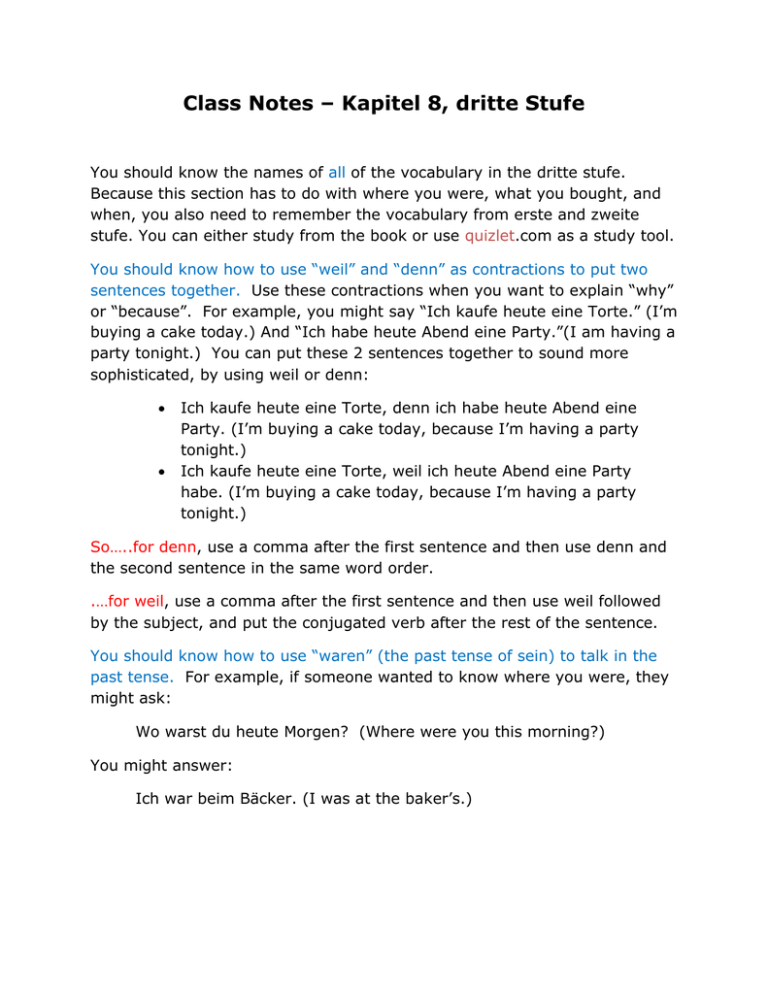
Class Notes – Kapitel 8, dritte Stufe You should know the names of all of the vocabulary in the dritte stufe. Because this section has to do with where you were, what you bought, and when, you also need to remember the vocabulary from erste and zweite stufe. You can either study from the book or use quizlet.com as a study tool. You should know how to use “weil” and “denn” as contractions to put two sentences together. Use these contractions when you want to explain “why” or “because”. For example, you might say “Ich kaufe heute eine Torte.” (I’m buying a cake today.) And “Ich habe heute Abend eine Party.”(I am having a party tonight.) You can put these 2 sentences together to sound more sophisticated, by using weil or denn: Ich kaufe heute eine Torte, denn ich habe heute Abend eine Party. (I’m buying a cake today, because I’m having a party tonight.) Ich kaufe heute eine Torte, weil ich heute Abend eine Party habe. (I’m buying a cake today, because I’m having a party tonight.) So…..for denn, use a comma after the first sentence and then use denn and the second sentence in the same word order. .…for weil, use a comma after the first sentence and then use weil followed by the subject, and put the conjugated verb after the rest of the sentence. You should know how to use “waren” (the past tense of sein) to talk in the past tense. For example, if someone wanted to know where you were, they might ask: Wo warst du heute Morgen? (Where were you this morning?) You might answer: Ich war beim Bäcker. (I was at the baker’s.) Waren is conjugated as follows: ich war wir waren du warst ihr wart er, sie, es war sie waren Sie waren In addition to saying where you were (using waren), you need to be able to say what you bought, using the conversational past verb form (habe…..gekauft) . So, if you were at the bakery in the morning, someone might ask you what you bought. For example: Was hast du beim Bäcker gekauft? (What did you buy at the bakery?) You can then answer: Ich habe Brot gekauft. (I bought bread.)
